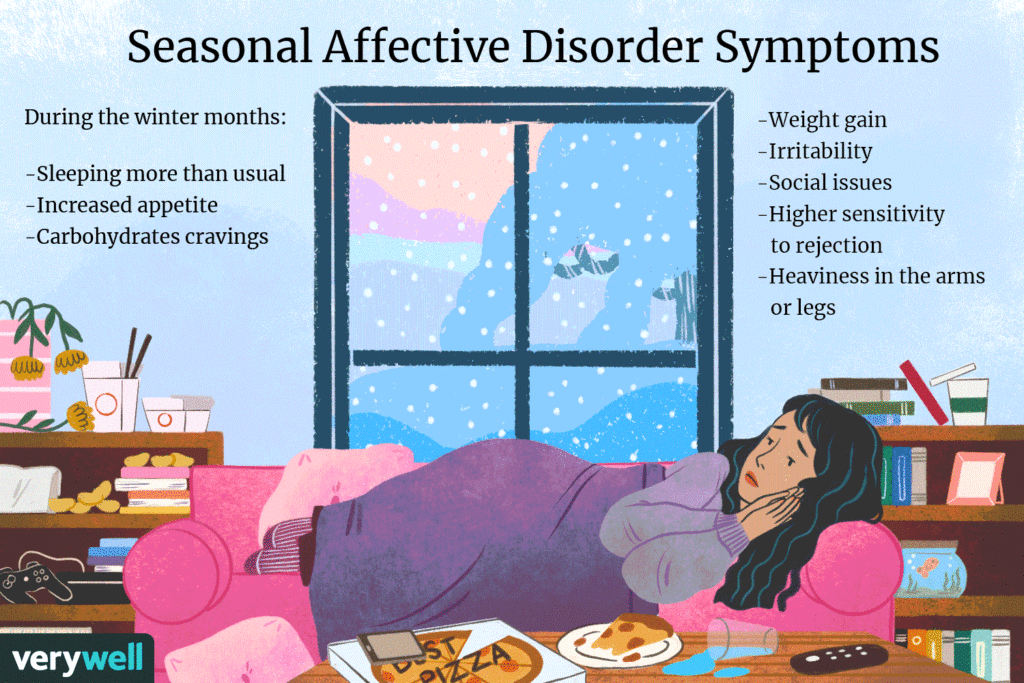Boost mood through nutrition by discovering foods that can help alleviate depressive symptoms like SAD. As the seasons change and the days become shorter, some of us are dealing with Seasonal Affective Disorder (SAD). It’s a form of depression that typically occurs during the winter months. The lack of sunlight and colder temperatures can take a toll on mental health. It makes symptoms like a lot of tiredness,, irritability, and a persistent low mood. While there’s a lot of treatments out there, one often overlooked approach is the impact of nutrition on mental health. I am just one of those lucky ones that face SAD every year. Right now I wanna kick seasonal blues to the curb, so I gotta be picky about what I’m stuffing in my face. Especially after the holiday season.
The Sunshine Vitamin: Embracing Vitamin D-Rich Foods
Sunlight is a natural source of Vitamin D. During the winter months our exposure to sunlight is limited. So we get to lacking in Vitamin D which can contribute to the onset of SAD. Eating foods rich in Vitamin D can help combat the deficiency, like fish. Salmon and mackerel, fortified dairy products, and egg yolks are excellent sources of this sunshine vitamin. Including these can not only boost your Vitamin D levels but also uplift our mood. So I’ll go with an omelet for breakfast and something like salmon with rice, lemon, and candied carrots?
Serotonin-Boosting Foods: The Role of Tryptophan
Serotonin, often referred to as the “feel-good” neurotransmitter, plays a significant role in regulating mood. Tryptophan, is a precursor to serotonin. Consuming tryptophan-rich foods can enhance serotonin production, helping to alleviate symptoms of depression. Turkey, chicken, nuts, seeds, and tofu are all excellent sources of tryptophan that can be put into my meals to support my getting-happiness. Nutty health snack bars, turkey roll ups, and ready made roasted chicken?
Omega-3 Fatty Acids: Nourishing the Brain
Omega-3 fatty acids are essential for brain health, and research suggests a link between low omega-3 levels and depression. Cold-water fatty fish such as salmon, trout, and sardines are packed with these beneficial fats. Additionally, flaxseeds, chia seeds, and walnuts are plant-based sources of omega-3s. Including these foods in our diets not only supports our brain function but can also make me in a better mood. I’m not living back in the old days where I have to go fishing every day for my meals, so I’m not sure how to keep up this Omega-3 thing without a supplement to swallow. I can put flaxseeds, chia seeds, and walnuts in my smoothies though!
Complex Carbohydrates: Fueling Energy and Mood
Yes! Bring on the carbs! Carbohydrates are often associated with comfort foods, and there’s a reason for that – they play a role in the production of serotonin. Opting for complex carbohydrates like whole grains, legumes, and vegetables can provide a steady release of energy and contribute to a stable mood. These foods also prevent blood sugar spikes and crashes, helping to maintain emotional balance throughout the day. Pound cake after my bean and cheese quesadilla? LOL.
Antioxidant-Rich Foods: Fighting Oxidative Stress
Oxidative stress, caused by an imbalance between free radicals and antioxidants in the body, has been linked to various mental health disorders, including depression. Consuming foods rich in antioxidants can help combat oxidative stress. Colorful fruits and vegetables, such as berries, kale, and spinach, are excellent sources of antioxidants. Including a variety of colorful foods in my meals can provide protection against the damaging effects of oxidative stress on my brain and body. I hate with a passion vegetables like a 2 year old looking at steamed limp chard for the first time. Blending them in smoothies it is!
Hydration: The Overlooked Key to Mental Sanity
While not a food per se, the importance of staying hydrated cannot be overstated. Dehydration can contribute to feelings of fatigue and lethargy, exacerbating symptoms of depression and the need to go to the bathroom a lot. Drink a bunch of water throughout the day and consider adding hydrating foods like grapes and cucumber into your snacks or meals. Thank goodness for water flavorers without the sugar.
In the fight for our daily lives against Seasonal Affective Disorder (SAD), nutrition can be a powerful ally. By strategically putting in foods rich in Vitamin D, tryptophan, omega-3 fatty acids, complex carbohydrates, and antioxidants, we can nourish our bodies and minds to deal with the impact of seasonal affected depression. While dietary changes alone may not replace other therapeutic ways, I’ll take all the help I can get! I believe in the healing power of the right foods so I’ll keep on keeping on as I anxiously wait for sunnier and warmer days.

